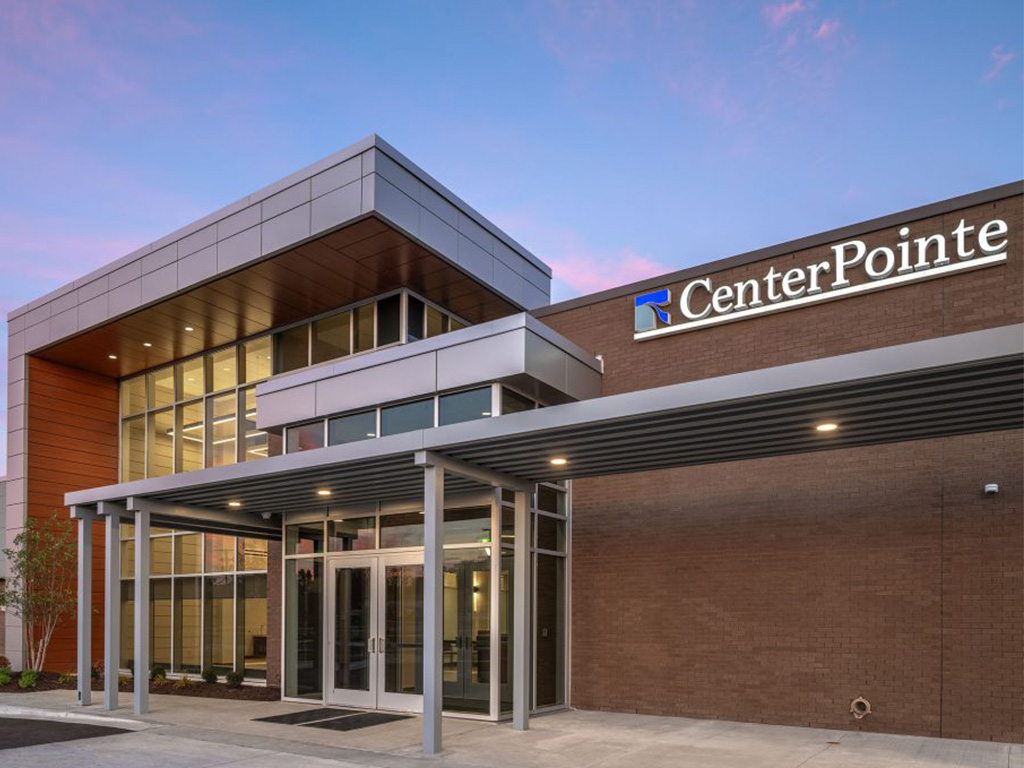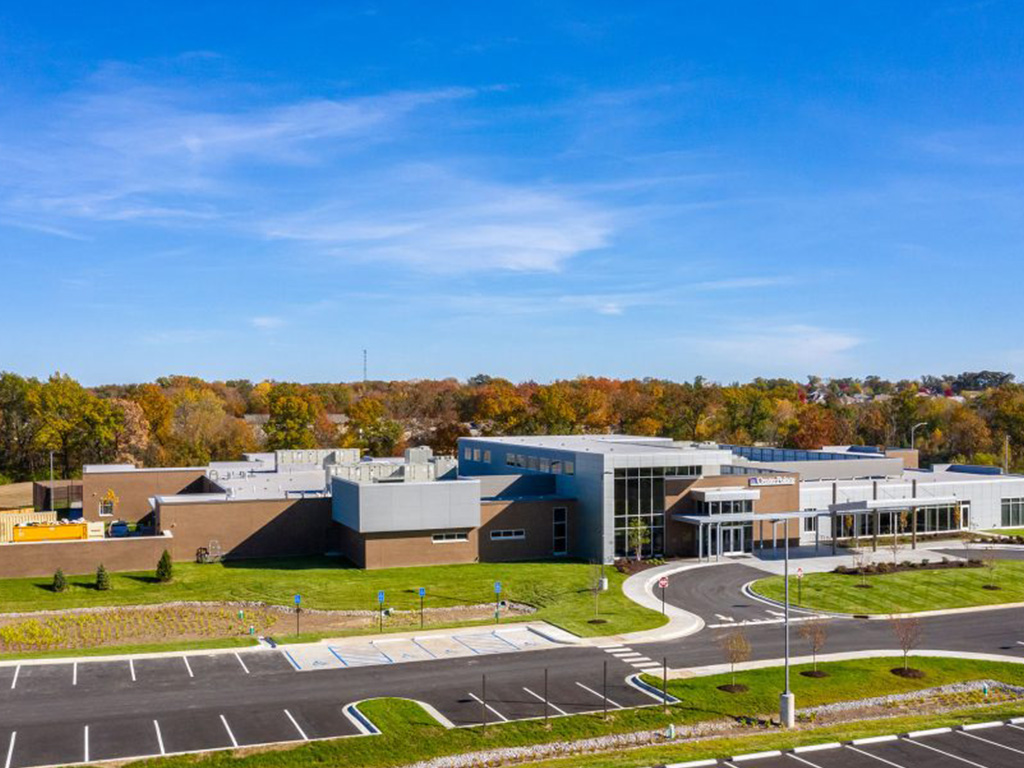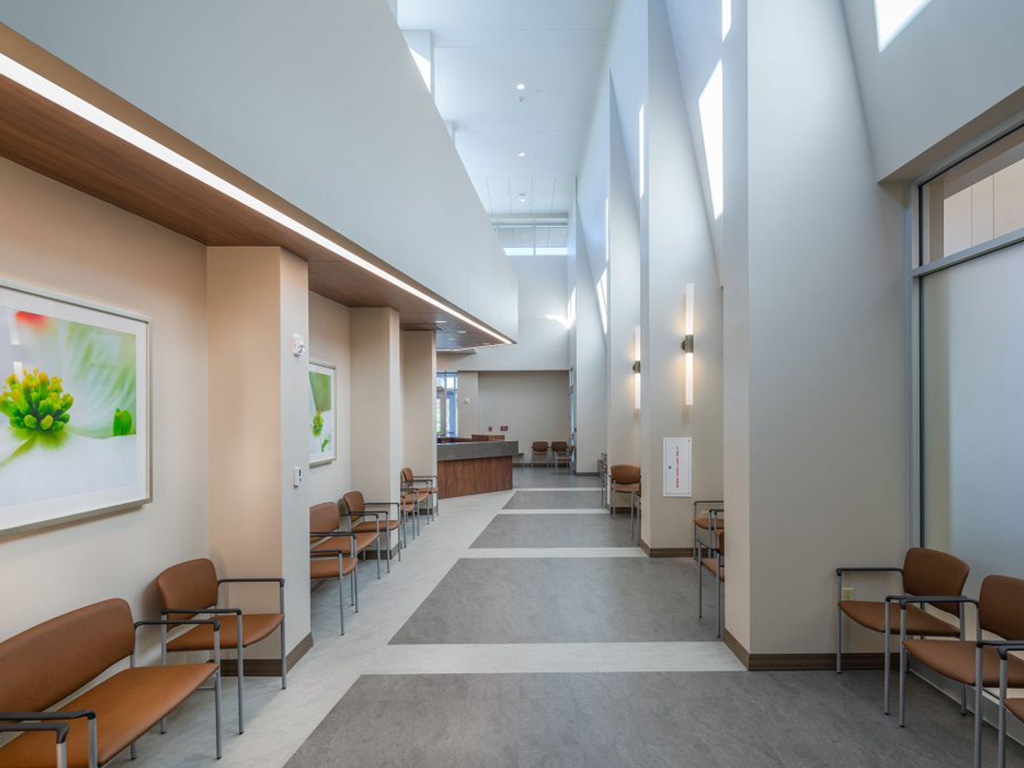Posttraumatic stress disorder (PTSD) is a mental health disorder a person may develop after witnessing or enduring a frightening, shocking, or dangerous event. PTSD can involve intense flashbacks, nightmares, or vivid memories of trauma.
It’s common for people who have experienced a traumatic event to feel on edge or have upsetting memories after. But if your struggles with past trauma begin to interfere with your ability to carry out daily activities, including going to work, attending school, or spending time with loved ones, you may benefit from professional PTSD treatment.
At CenterPointe Hospital of Columbia, located in Columbia, Missouri, we can help you explore underlying causes of PTSD and process past trauma so that you can get on a path to healing.
Signs & Symptoms of Posttraumatic Stress Disorder
The signs and symptoms of PTSD can begin shortly after a traumatic event occurs or develop slowly over time. While symptoms may vary from one person to another, there are some common signs to be aware of.
Typical signs and symptoms of PTSD include:
- Persistent thoughts, flashbacks, or memories of a traumatic event
- Avoiding people or situations that may trigger thoughts of a traumatic event
- Difficulty functioning at work, at home, or in school
- Social withdrawal
- Feeling detached or numb
- Becoming easily angered
- Nightmares or difficulty sleeping
- Memory impairment
- Panic attacks
- Substance use
If you are exhibiting any of these warning signs, please don’t hesitate to find the help you need. Symptoms of PTSD may worsen with time, so seeking treatment early is essential.
Posttraumatic Stress Disorder Causes & Risk Factors
Surviving a traumatic event does not necessarily mean that you will have PTSD, but there are certain risk factors that can increase your likelihood of developing it. It’s important to note that many of these factors may be out of a person’s control.
Common risk factors for PTSD include:
- Experiencing trauma early in life, such as childhood abuse
- Having other mental health conditions, like depression or anxiety
- Misuse of drugs or alcohol
- Having a profession that exposes you to trauma, like first responders and military members
- Having a family history of mental health disorders
PTSD is not a sign of weakness — it can happen to anyone. A person can develop PTSD after experiencing or witnessing a distressing event or learning of an event that happened to a loved one.
Events that commonly cause posttraumatic stress disorder include:
- War
- Being taken as a hostage or kidnapped
- Terrorist attacks
- Abuse in childhood
- Sexual or physical violence
- Catastrophic natural disasters like hurricanes and earthquakes
- House fires
- Motor vehicle or large-scale transportation accidents
- Life-threatening illnesses
Effects of Posttraumatic Stress Disorder
When left untreated, PTSD can negatively impact many areas of someone’s life, including their relationships, employment, and physical health.
Common effects of PTSD include:
- Difficulty maintaining a job
- Social isolation
- Strained relationships
- Aggressive or violent behavior
- Self-harm
- Suicidal ideation
- Suicide attempts
People who struggle with PTSD may develop additional mental health disorders and are more likely to misuse substances, which can lead to addiction. Seeking treatment early can help you drastically reduce your risk for experiencing negative effects of PTSD.
Posttraumatic Stress Disorder Statistics
The following statistics about PTSD are from the National Alliance on Mental Illness (NAMI):
- An estimated 9 million people, or 3.6% of the U.S. adult population, are impacted by PTSD.
- Of American adults who are diagnosed with PTSD, 37% suffer from severe symptoms.
The National Center for PTSD reports that about 8 in 100 women will have PTSD at some point in their lives, while only 4 in 100 men will.
Therapies Used in Posttraumatic Stress Disorder Treatment
At CenterPointe Hospital of Columbia, we take a comprehensive, individualized approach to treating PTSD. During the admissions process, our team evaluates each person’s symptoms, health history, and goals for treatment to determine the best plan for their care.
Depending on your needs, your treatment plan may include:
- 12-Step programming
- Motivational interviewing
- Psychoeducation
- Family counseling
- Experiential therapy
- Supportive therapy
- Cognitive behavioral therapy
- Dialectical behavior therapy
- Medication management services
- Detoxification services if you have a co-occurring addiction
Individuals in our care also participate in group therapy, which is a highly beneficial component of PTSD treatment. It’s not uncommon for people who have PTSD to feel isolated, and these sessions can provide a forum for those who are struggling to receive support from peers.
During groups, you’ll have the opportunity to connect with others who understand what you’re going through while learning about important topics for healing. Sessions are led by master’s-level therapists who can teach you how to improve coping and problem-solving skills, develop enhanced self-awareness, recognize unhealthy behaviors, and ask for and receive support.
Benefits of Posttraumatic Stress Disorder Treatment
If a person who is battling PTSD does not receive treatment, they may be putting themselves at greater risk for self-harm. In the worst cases, PTSD can lead to suicide. If you or someone you love is suffering from PTSD, please do not hesitate to ask for support.
Overcoming the impacts of trauma can seem impossible, but help is available at our PTSD treatment center. By seeking professional treatment for posttraumatic stress disorder, you can learn to manage your symptoms and start leading a productive, fulfilling life.
Choosing the Right Posttraumatic Stress Disorder Treatment Center
Selecting the right posttraumatic stress disorder treatment place can be overwhelming. As you make your decision, there are a number of things you may want to consider, like what levels of care are offered, the treatment team you’ll be working with, and which therapies and services are provided.
At CenterPointe Hospital of Columbia, not only will you follow a customized treatment plan, but you’ll receive care from a team of highly trained professionals. Our staff is comprised of licensed clinical social workers, mental health technicians, dietitians, psychiatrists, nurse practitioners, and other medical professionals who deliver services with compassion. Under their guidance, you can receive the encouragement and support you need to achieve better health.
This content was written on behalf of and reviewed by the clinical staff at CenterPointe Hospital of Columbia.














